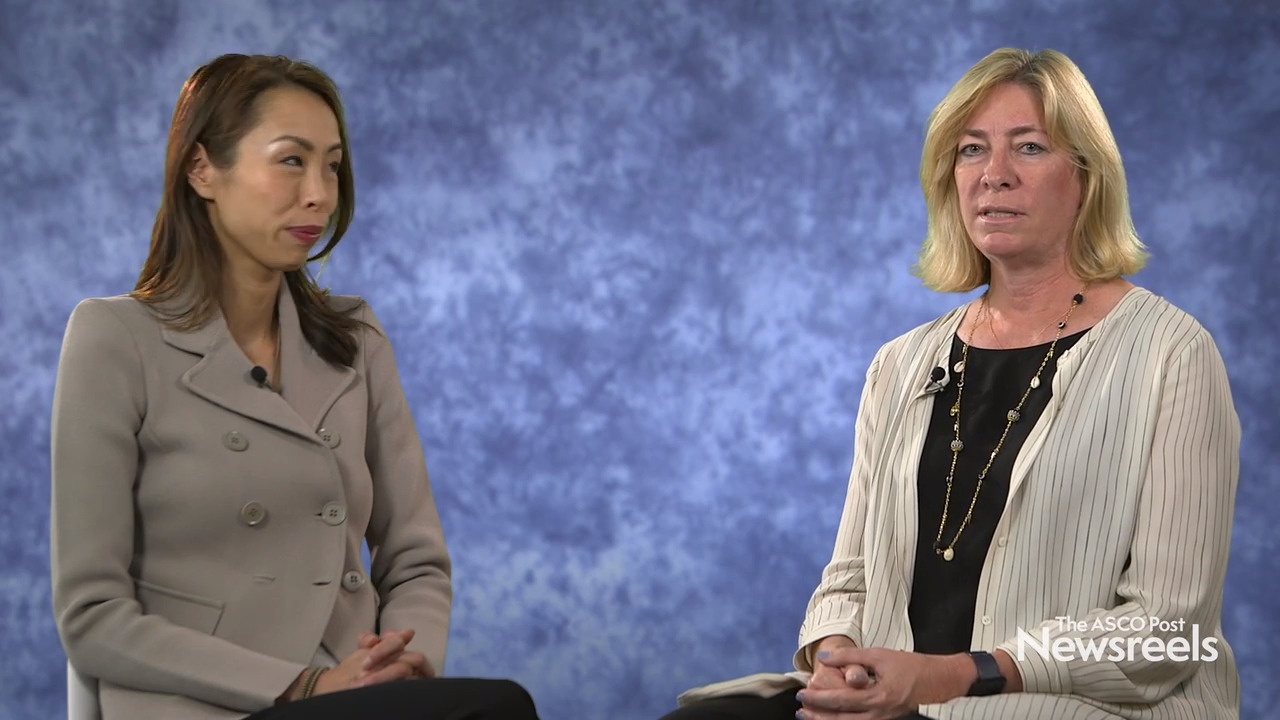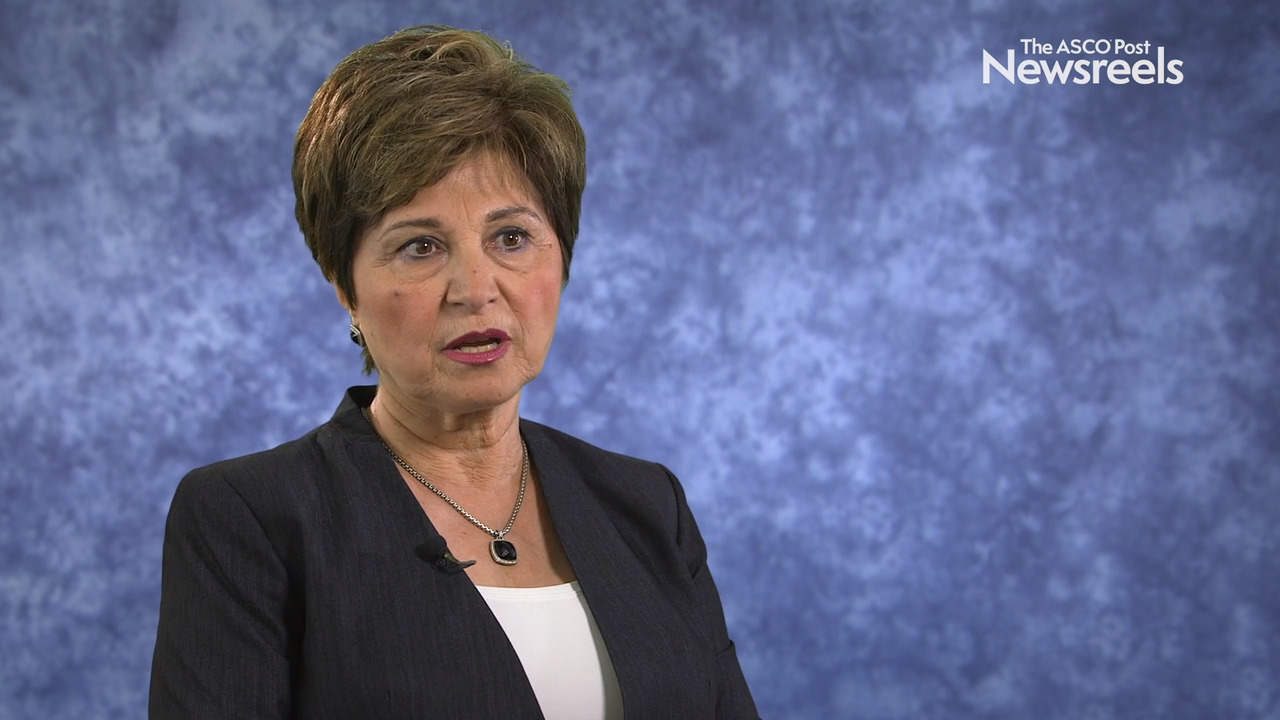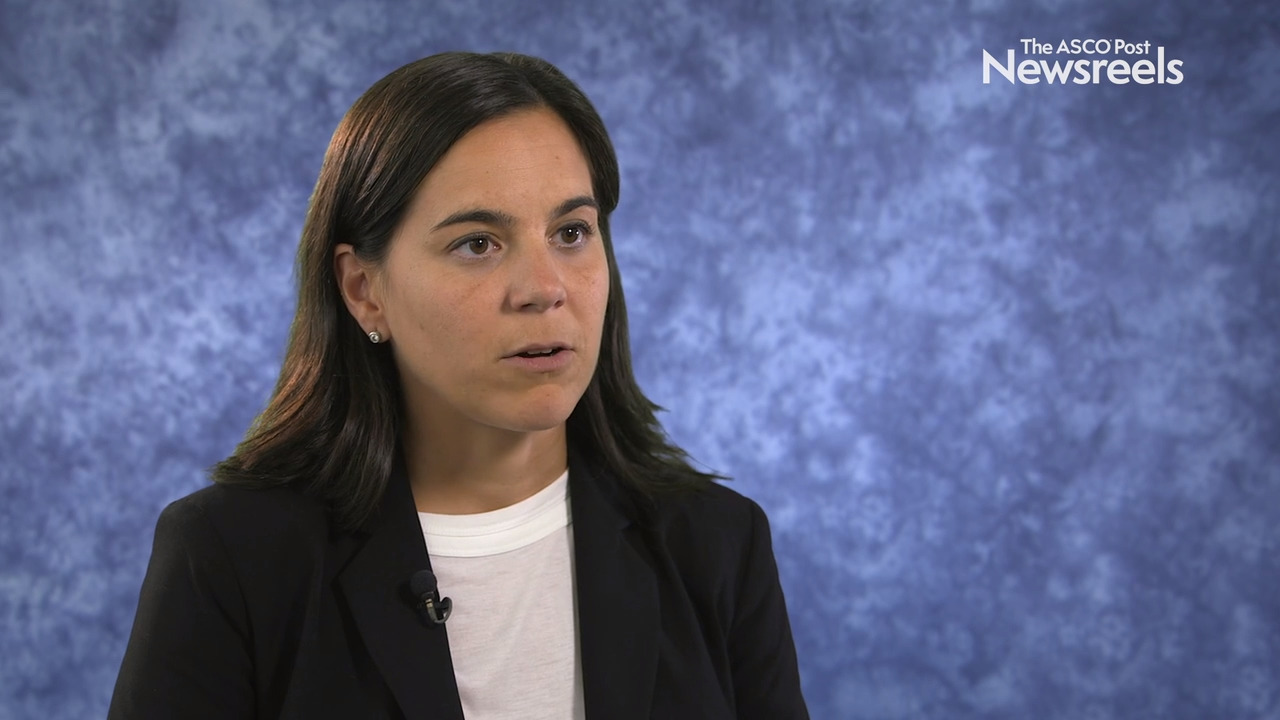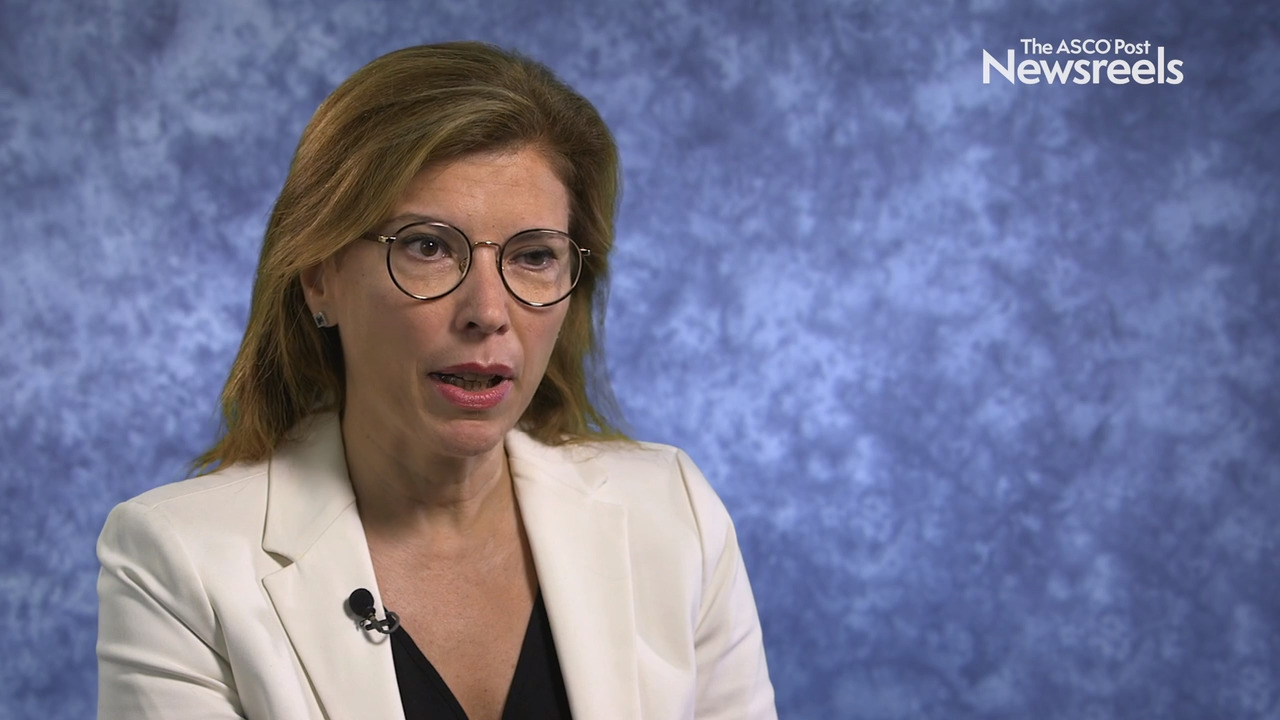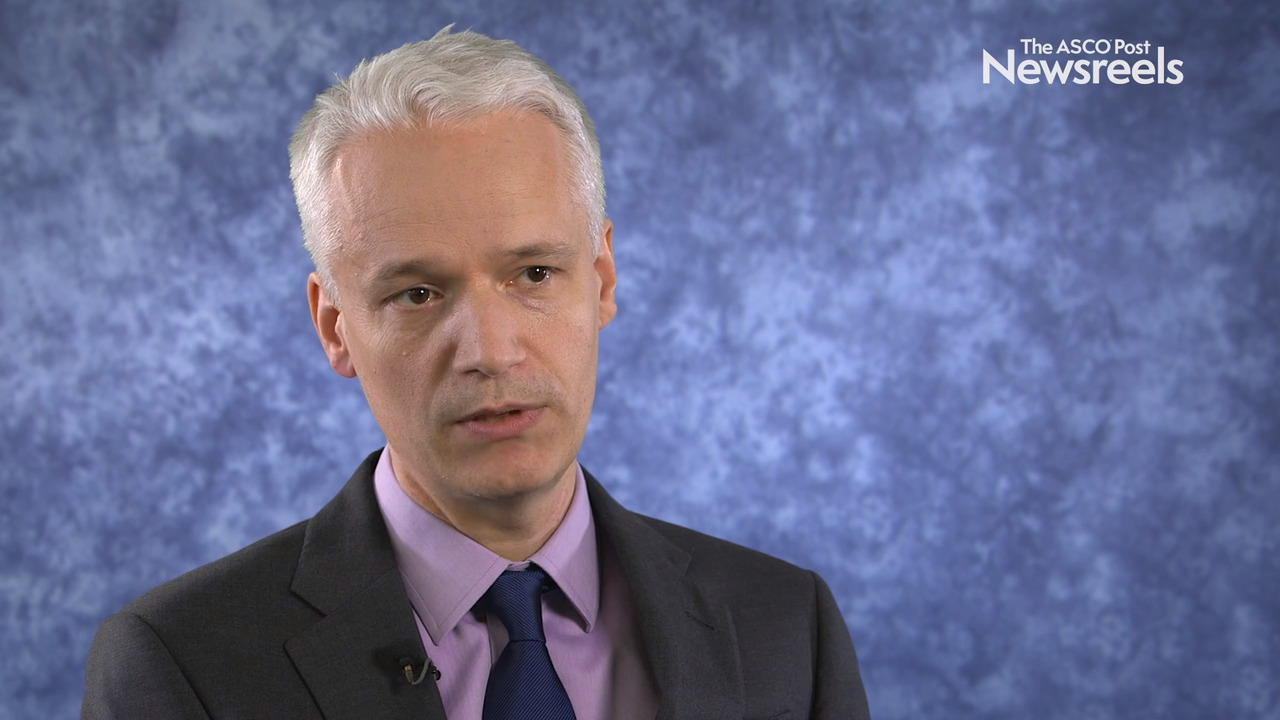Véronique Diéras, MD, on HER2-Negative, BRCA-Mutated Breast Cancer: Veliparib Plus Carboplatin/Paclitaxel
ESMO 2019 Congress
Véronique Diéras, MD, of Institut Curie Paris & Saint Cloud, discusses results from the phase III BROCADE 3 trial, which investigated the PARP inhibitor veliparib in combination with carboplatin/paclitaxel in patients with advanced HER2-negative, germline BRCA–mutated breast cancer (Abstract LBA9).
Sherene Loi, MD, PhD, of Peter MacCallum Cancer Centre at the University of Melbourne, and Leisha A. Emens, MD, PhD, of UPMC Hillman Cancer Center, discuss overall survival in this phase II study of atezolizumab/trastuzumab emtansine (T-DM1) vs placebo/T-DM1 in previously treated HER2-positive advanced breast cancer (Abstract 305O).
Maha H.A. Hussain, MD, of Northwestern University Robert H. Lurie Comprehensive Cancer Center, discusses the phase III PROfound trial results on the efficacy of olaparib in men with metastatic castration-resistant prostate cancer whose tumors harbor alterations in DNA damage response genes and who had disease progression on prior hormone therapy (Abstract LBA12).
Angela Lamarca, MD, PhD, of the Christie NHS Foundation Trust, discusses findings from a study that showed new staging criteria should be considered for patients diagnosed with liver metastases in the absence of other extrahepatic tumor spread (Abstract 731P).
Ana Maria Arance Fernandez, MD, PhD, of the Hospital Clínic de Barcelona, discusses the negative results of the phase III IMspire170 trial, which evaluated cobimetinib/atezolizumab vs pembrolizumab monotherapy in patients with BRAF V600 wild-type melanoma (Abstract LBA69).
Robin L. Jones, MD, MBBS, of The Royal Marsden/Institute of Cancer Research, discusses the first phase III study in angiosarcoma, which showed no difference in outcome between pazopanib vs pazopanib plus the novel monoclonal antibody TRC105 (Abstract 1667O).
